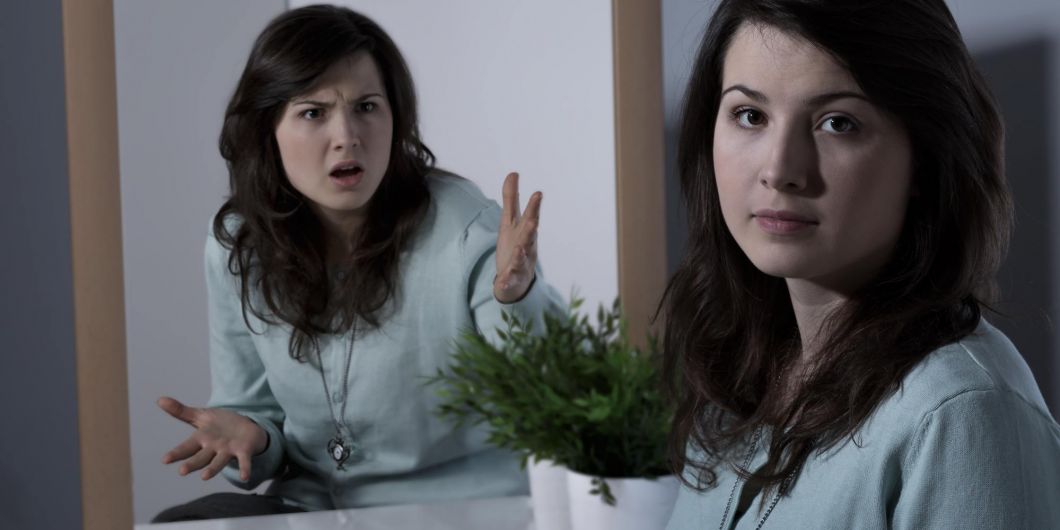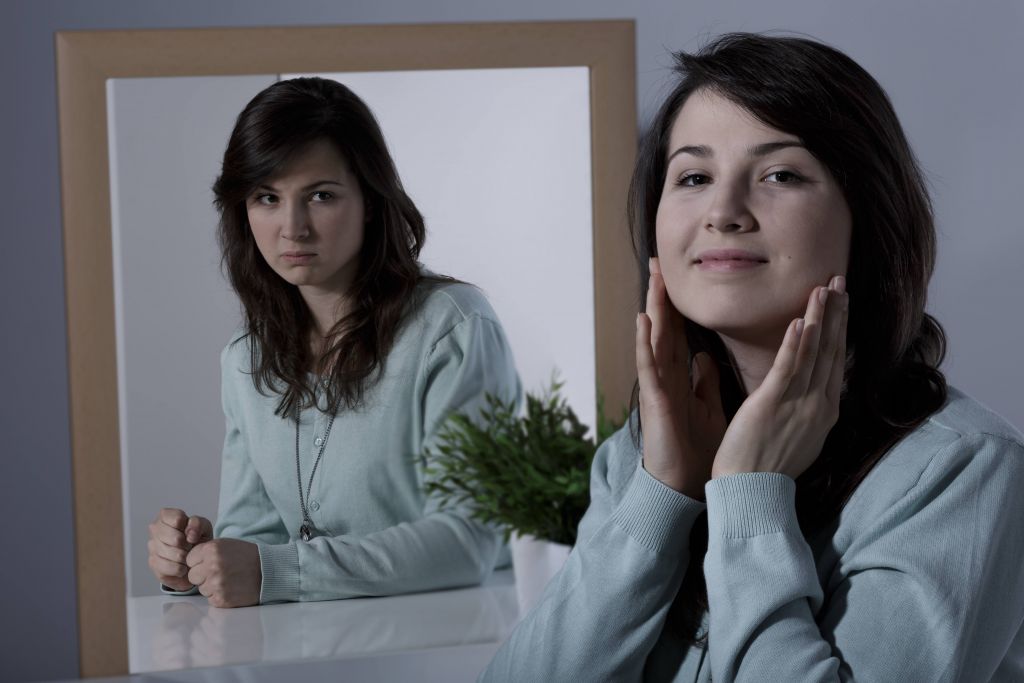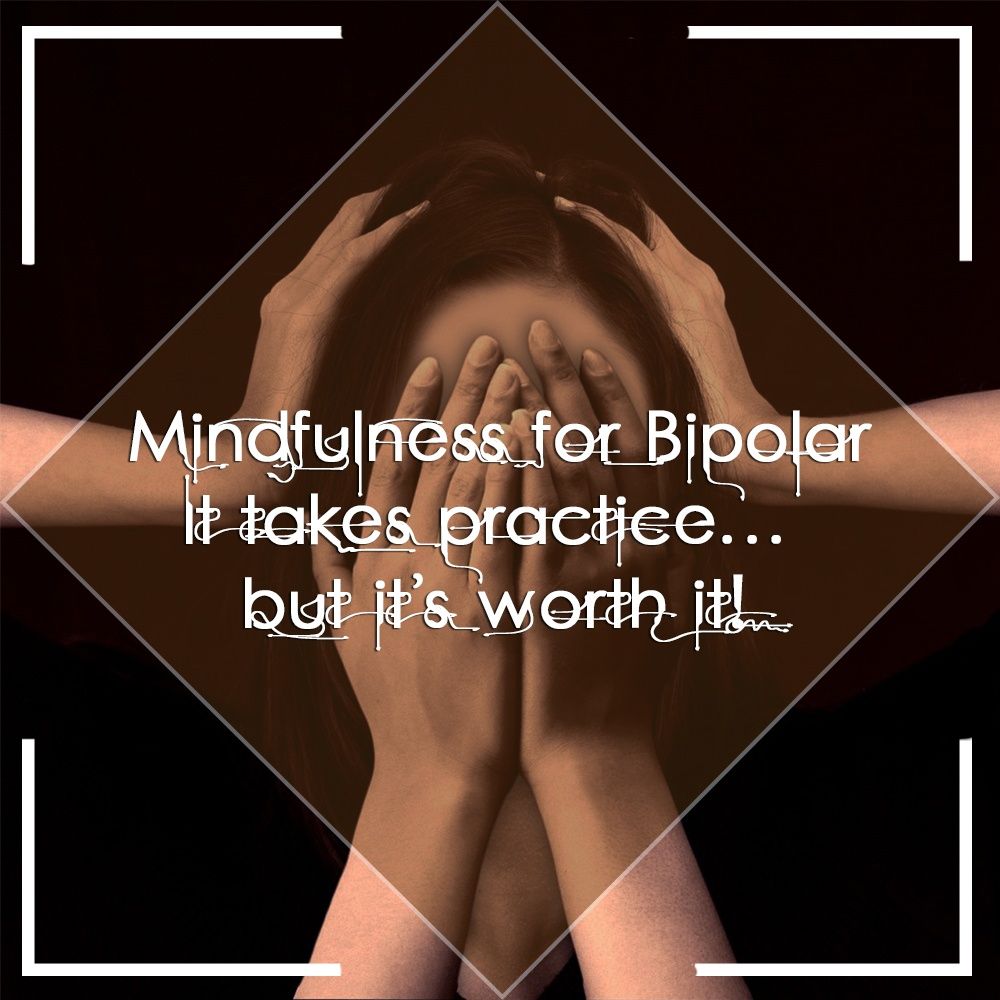- in Depression , Mental Health , Mindfulness by Tony
Mindfulness for Bipolar

Many prominent psychologists and counsellors are employing Mindfulness-Based Cognitive Behavior Therapy (MiCBT) as a practical approach for their clients. Therapists are using this technique more and more for bipolar disorder.
More...

This should not be limited to therapists and professionals in the mental health field. There’s no reason why anyone who is afflicted by bipolar disorder can’t apply mindfulness and reduce its symptoms within the comfort of their own home.
Mindfulness focuses on the here and now using our senses to become present in the moment. Many times, during the day we experience the same mundane tasks and our brain unknowingly goes to autopilot.
Picture your drive home from work. Every single day. The same route. Passing by the same streets and houses and buildings. You’ve got the radio on the same station, as always, and your mind is off somewhere in the distance.
By the time you get home you have no real recollection of the drive or how you got from point A to point B, but you did. On autopilot.
And during that drive you probably spaced out and thought about a ton of things. Perhaps you revisited an unpleasant conversation with your boss and thought about all the things you wish you would have said.
Or you could have been scrambling your brain trying to figure out what to cook for dinner as you forgot to lay out something this morning. Whatever the case, you weren’t in the moment.
Mindfulness helps us control where are thoughts go and how to reel them back in when they slip back into autopilot. It helps us to become aware of sensations and thoughts and emotions occurring right now.
Mindfulness for bipolar specifically helps stop:
- The “Autopilot” cycle.
- Worrying about the future.
- Reliving the past.
- Regretting decisions long past.
- Obsessive thinking.
Bipolar, as you are probably aware, has peaks and valleys of complex moods.
These can be like anxiety and depression symptoms.
However, in bipolar these moods are much more prominent and can even encompass delusional thinking.
The depressive symptoms can be extreme and boundless, often including thoughts of suicidal ideation.
To get control of these moods would be life-changing for those dealing with bipolar disorder.
Potential benefits of mindfulness for bipolar:
- Improved attention and focus.
- Decreased worry and rumination.
- Less emotional reactivity.
- Greater self-compassion.
- Better stress management.
This isn’t an easy way out or a fix-all solution to every symptom. Employing mindfulness takes times to develop the techniques unique to your situation, to your set of needs. It’s a daily practice, not something you can just pick up and try out whenever you have a break and need a little bit more help.
But the great news is, it does work. Maybe it won’t eliminate all your symptoms or stop an episode of mania from happening, but if the mood could be even a little less intense and frightening, mindfulness is worth it.
Getting started with mindfulness practices is much like anything else, you jump in and find what fits for your lifestyle. The first and easiest step is to find the anchor that works best for you.
Common Mindfulness Meditation Anchors
Breathing – counting inhalations/exhalations
Body sensation – paying close attention to how your body is feeling right this second, wherever you are, how your feet feel, legs, arms, neck, face… everything.
- Are you sore?
- Energised?
- Exhausted?
- Hot or cold?
Mantra – a set or words or phrase on repeat either out loud or in your head.
Movement – a meditation walks or some stretching exercises, or even yoga.
The point of the anchor is having something you can mentally grab hold of and create an unbreakable focus.
If your mind moves and slips into autopilot, gently pull yourself back to your anchor.
It’s going to happen, again and again.
The goal is to be in control of your mindfulness experience.
Accept what’s going on in the present moment even if it’s uncomfortable and realise it’s fleeting.
It will pass.
You’ll give yourself less attachment to the storm brewing because of the bipolar and be able to focus more on working through the sensations and mindful decision making.
It takes time to develop a good mindfulness for bipolar routine, and lots of practice.
The outcome is worth the time spent.
Not only will you feel better about your bipolar symptoms and moods, but mindfulness will spill over into your everyday life offering an overall peace and confidence.

Angela W Reviewer: Denise RQ I guess I should start by telling you a little bit about who Laura is.
She’s a very passionate person.
And she loves science very much, and loves to talk about it all the time, much to her friends’ dismay.
She’s also a sailor.
She used to be the registrar of the UBC Sailing Club.
So, other things– she’s a daughter, she’s a sister to three big brothers.
She’s also an auntie to the cutest little niece ever.
She’s bipolar.
Bipolar is a brain disorder which causes unusual shifts in a person’s mood, energy, or ability to function.
It’s unlike the normal ups and downs that people go through.
The symptoms of bipolar are more severe.
In the “Diagnostic and Statistical Manual for Mental Disorders,
” it describes it in this way,
“Bipolar is the presence or history of one or more major depressive episodes present during the same two-week period, and represent a change from previous functioning. At least one of the symptoms is either depressed mood or loss of interest or pleasure”.
These symptoms can be depressed mood most of the day nearly every day, markedly diminished interest or pleasure in all or almost all activities, significant weight, loss or weight gain, or decrease or increase in appetite, insomnia or hypersomnia nearly every day, psychomotor agitation or retardation nearly every day; fatigue or loss of energy nearly every day, feelings of worthlessness, or excessive, or inappropriate guilt nearly every day; diminished ability to think, or concentrate, or indecisiveness; recurrent thoughts of death not just fear of dying; or suicide attempt or a specific plan for committing suicide.
There’s also the presence or history of at least one manic episode.
Mania is a distinct period of abnormally and persistently elevated, expansive, or irritable mood, and abnormally and persistently increased activity or energy lasting at least four consecutive days, and present most of the day, nearly every day.
It can be described as inflated self-esteem, or grandiosity decreased need for sleep, more talkative than usual, or pressure to keep talking. There can be flights of ideas or subjective experience that thoughts are racing. There’s distractibility, increase in goal-directed activity or psychomotor agitation.
There’s excessive involvement in pleasurable activities that have a high potential for painful consequences.
“The DSM provides a common language among professionals who treat patients with mental illnesses.
By clearly defining the criteria for a mental disorder, the DSM ensures that the diagnosis is both accurate and consistent.
OK, enough of this bullshit.
I’m going to be real with you.
It’s pretty obvious that I’m the crazy one here.
My name is Laura, and I am living with bipolar.
So, I want to offer you today a bit of my story.
I want to go beyond the traditional definitions and give you a bit more of the lived experience.
I must admit, sometimes, it can be frustrating to explain bipolar to those who are not experienced in the same mental skillfulness as I have. But I’m going to try.
So… I also want to talk about language.
It’s interesting because before I was ever diagnosed, I had never read the DSM.
I had no idea what criteria I was falling under.
All I knew was that there were times where I was sad, and there were times where I was happy.
And the times were I was sad or in depression, it was kind of like this winter state.
It was like things were darker or colder.
And times of mania are more like summer.
There’s high energy, things are bright and fun.
I was about 16 when I first began to experience the inexplicable periods of sadness.
There were no external reasons for me to feel this way.
My mind simply placed me there in this depressed winter state.
It wasn’t until later on that I began to realize the manic summers, which were interesting.
And so, what I decided to do is I started to track my moods on a calendar.
Each day, depending on if I was feeling if I had higher energy or lower energy, I would place an arrow on that day.
I started to notice that there would be persistent upward arrows indicating higher energy for about two weeks. And then, there would be a shift into downward arrows which would last for another two weeks.
This was confusing for me.
And it was unsettling for my mind, especially in the transition days, going from high to low. I felt out of control in these cycles that I was tossed into.
It’s scary, and I needed some relief.
This is when I sought out a counselor at College.
In weekly cognitive therapy sessions, I was able to work through some of these ups and downs, and highs and lows, and whatever we’re going on.
And I learned some really helpful tools for how to find balance.
As a scientist, I find it very difficult to look at myself and not apply a formula.
“If I do this, this, and this, then I’ll be happy.
“If I do this, this, and this, then I don’t have to be sad anymore.
” But you know, I learned that wellness is more like art.
And you have to be able to see the gray, and there’s not always a right answer.
I’m going to read to you a bit from my journal because after I saw a counselor for a while, I also realized that medication could be a helpful tool for me. And so, I went to see a psychiatrist.
And it was kind of scary. You know, sitting there, wondering, “OK, am I going to come out with a Laura/ bipolar Laura/crazy person? I don’t know.” But it wasn’t totally that way.
I started seeing a psychiatrist, dah-dah-dah-dah.
And then, I went for my second psychiatric assessment at UBC.
“A second opinion– an hour bike ride, an hour wait, and over an hour talking about my moods and family history.
It turns out that I am indeed Bipolar Type II, rapid cycling.
But whatever! I’m feeling much more comfortable with my mental things.
Taking meds seems less scary and more just something extra to do in my morning routine.
I’m still quite private, though, and I don’t feel comfortable sharing about my psychiatric appointments, my illness, or medication.
It’s still new, and it can be overwhelming at times. I’m working things through, and I think it’s going to be OK.
Well, I have some time to think about it on my bike ride home.
So, what’s it like to be manic?
Well, it’s kind of like wearing really gorgeous heels, like these. (Laughter)
And you just walk around, and you feel taller.
There’s a confidence.
There’s a direction to it. Just things are clear and easy. There are thoughts and ideas that just come so naturally; ideas, ambitions, hopes.
Anything is possible, the world is limitless! But trouble comes when these thoughts don’t stop, when it goes beyond your own control, when you can’t will yourself to sleep because you can’t stop thinking of the creative project that you want to do tomorrow, or the next trip that you want to go on, or your new life plan.
So, I have another journal entry to share with you.
All of my secrets.
This one I titled “Zopiclone,” also known as “Little Blue Pills.
” “My mental state: hypomanic. Bipolar season: summer.
I didn’t fall asleep until 4 a.m.
Too many thoughts, too many ideas, too much happening in my head.
After three and a half hours of willing myself to sleep, I made the healthy move, and I took one of these little blue pills.
A metallic taste lingers in my mouth.
It feels disheartening every time I have to take one, but I guess it’s OK.
Even though I may have the tools, I sometimes lack the connection.
In the end, I was glad for my humility.
Sleep was good.
I find that the struggle is harnessing this energy for school purposes and holding off on my social and creative ambitions.
Then, there’s the other side of things. The depression side. Well, depression is more like slippers. Not the comfy, cozy kind of slippery feeling. It’s more of the need to feel safe and secure. That outside of these slippers, it’s just not right. And it’s kind of awkward walking around in slippers, giving a talk in front of 400 people, being depressed amongst classmates, and family, and friends, and roommates.
And with depression, there also comes these kinds of winter glasses, where things just seem darker.
It’s out of focus.
The lenses are distorted, and it’s difficult to see farther ahead. So, bipolar is kind of like wearing the depressed slipper on one foot, and a hypomanic heel on the other.
This is such a contrast.
You know, on one foot you’re walking around, just upon an adventure, ready to go and see the world, and then you fall down, and just can barely get out of bed, and just drag along. But, you know, I live like this.
Somehow, each day, I live like this.
It’s funny because when I first applied for the TerryTalk, I was definitely wearing the manic heel. (Laughter)
And then, they accepted me, and I was like, “Oh, crap!” (Laughter)
And then, a week or so later, I became depressed, and the thought of standing here today in front of all of you, in my slippers, it was just impossible!
So, how does this fit in relationships?
As I said before, sometimes, it can be frustrating to try to explain my moods to those who haven’t experienced this, who aren’t mentally skilled.
And yet, I really do want to try.
I really do want to start talking about these things, because even in just the title of this talk, you wouldn’t believe how many conversations have been started which never would’ve happened, and that’s a beautiful thing.
Because when we start talking about this stuff, it becomes OK.
So, as I walk around campus – I’m a biology student in my fifth year – I’m just savoring the last little bit that I got. I have classes over in Buchanan, and in forestry, and all over campus.
I see the slogan that is everywhere which says that “UBC is a place of mind.” It causes me to question,
“What kind of mind is this?
Is it an open mind?
Is it a healthy mind?
Is this a place where my mentally ill mind can be?
I wonder, after this, are you going to call me Laura?
Or are you going to call me bipolar?
Tell me; is this OK, or do I have to hide?
Thank you.
(Applause) .


